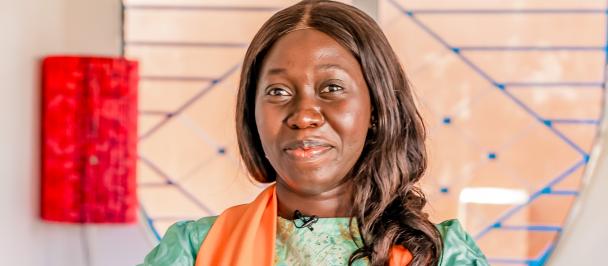Following the electoral defeat and exile of former President Yahya Jammeh in 2017, The Gambia, a small landlocked West African country, embarked on a transitional justice process to rebuild a democratic state where human rights, individual liberties, and the rule of law prevail.
Justice and Democracy at the Heart of Transition in The Gambia
August 1, 2024

Gambia
Preserving the Memory of Victims
Inside the "Memory House" in Banjul, there is a powerful reminder of Yahya Jammeh's 22-year regime in The Gambia. The pavilion's dimly lit rooms, illuminated by daylight, contain photos, personal effects, and handwritten letters of those who disappeared under this regime accused of repeatedly committing numerous serious human rights violations, including summary executions, murders, enforced disappearances, sexual violence, arbitrary detention, and torture.
"It is a place of remembrance and reflection to honor the victims. This tragic history must serve to educate [others] so that The Gambia can have a better future. It is our common duty."Sirra Ndow, Gambian Representative of the African Network against Extrajudicial Killings and Enforced Disappearances (ANEKED), which runs the "Memory House."
On that day, 31-year-old Aishah Jammeh came to the memorial site to pay her respects once again. Her father and aunt were murdered during the dictatorship. This family tragedy set her on the path of political activism for democracy.
"Democratic elections are the most important thing for me. Through them, we can remove a dictator from power. I appreciate the way we now exercise our democracy. We have freedom of speech and expression. We were silenced. But today, young people are also involved in state reforms," says Aishah.
An Inclusive and Popular Process
After the fall of the former regime, the newly elected government quickly embarked on a national transitional justice process, setting up several institutions and bodies to address crucial issues related to security, finance, constitution review, and reconciliation.
The Truth, Reconciliation, and Reparations Commission (TRRC) was established in December 2017 with the primary objective of establishing an impartial historical record of human rights violations and abuses committed from July 1994 to January 2017... and making known the fate of missing victims and providing reparations to victims in appropriate cases, began public hearings on January 9, 2019. Among the main objectives of this unprecedented process for the country is inclusive justice focused on victims so that all Gambians can embrace it. The nearly 400 witness public hearings were broadcast live on television, radio, and social media. During these hearings, victims and civil society organizations expressed their desire for justice, respect for human rights, and the need to support measures aimed at preventing the recurrence of repression.
In the TRRC's final report submitted to President Adama Barrow on November 25, 2021, there is a list of officials to be prosecuted, as well as recommendations aimed at creating appropriate prevention mechanisms, including institutional and legal reforms.
"This work has been very fruitful and inclusive at all levels. It is an example of international leadership."Aissata De, Former UNDP Resident Representative in Gambia.
She continued, "Now there is a reflex of accountability, both individual and collective when something happens. This is one of the main progress the transition has made possible." The UN Secretary-General's Peacebuilding Fund played a crucial role in enabling the hearings, providing equipment, technical support, and support for territorial networking.
The task of reconstructing the social contract and institutions is still ongoing. At the same time, citizens, activists, victims, and non-governmental organizations are safeguarding democracy. Once again, driven by the youth, a wind of hope and optimism is blowing over The Gambia.
Looking ahead
The government's task is to implement an agenda that effectively addresses the needs of the people in terms of peace, security, development, and governance. According to Sirra Ndow, Director of the "Memory House," progress has been made, but there is still much to be done. "We need more transparency. The system is not efficient enough. That said, the positive point is the prospect of reconstruction, the opportunity to do things right. That is the most motivating and inspiring thing," she adds.
On the heels of the democratic transition, which has opened the door to new economic and development opportunities, the Gambian youth seems ready to take on the immense challenges that lie ahead.
"In key sectors of the economy such as tourism, finance, digital or agribusiness, young oeople are doing a remarkable job! This is what we should rely on because the future of our country rests on our shoulders," concludes Aisha Jammeh with a smile.
"In a region facing many challenges and shocks, The Gambia could be a good example. Now that important groundwork has been done, the process needs to be concretized, and Gambians are expecting results," concludes the UNDP Resident Representative.

 Locations
Locations



